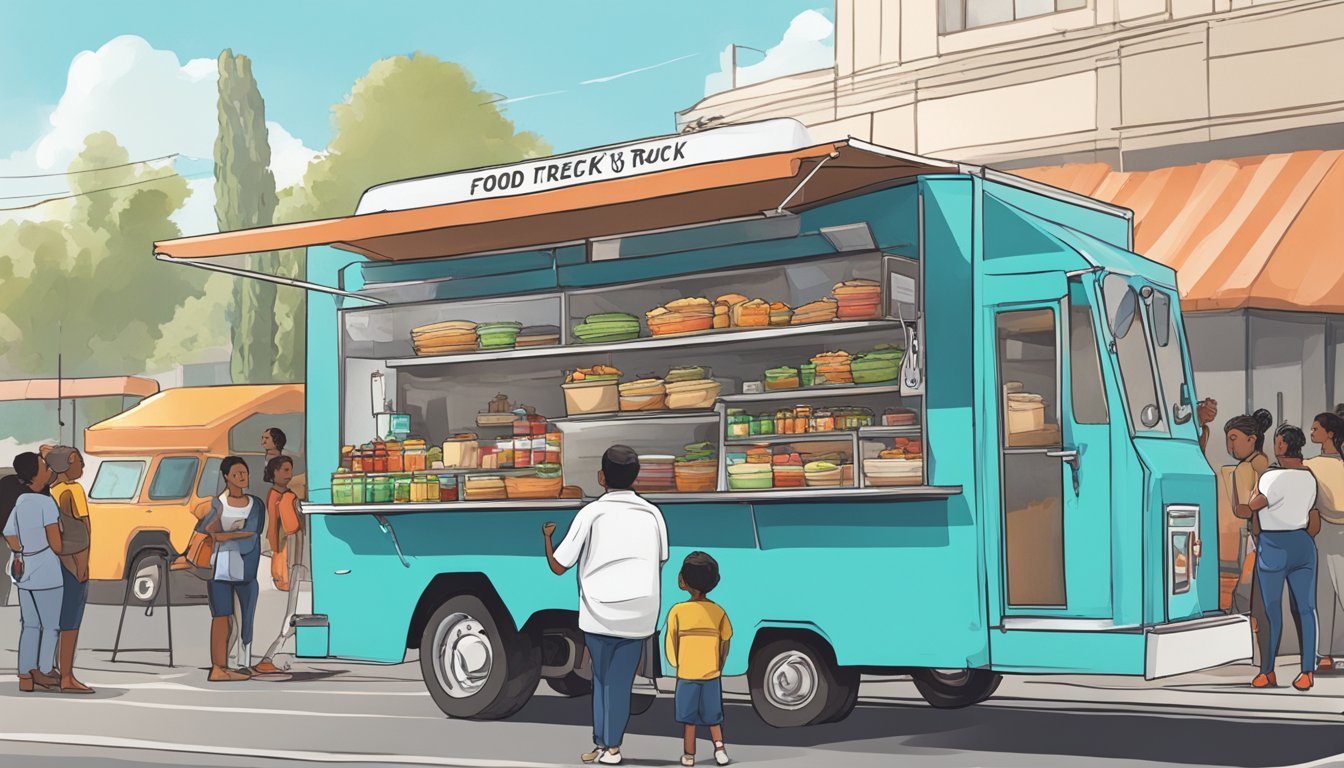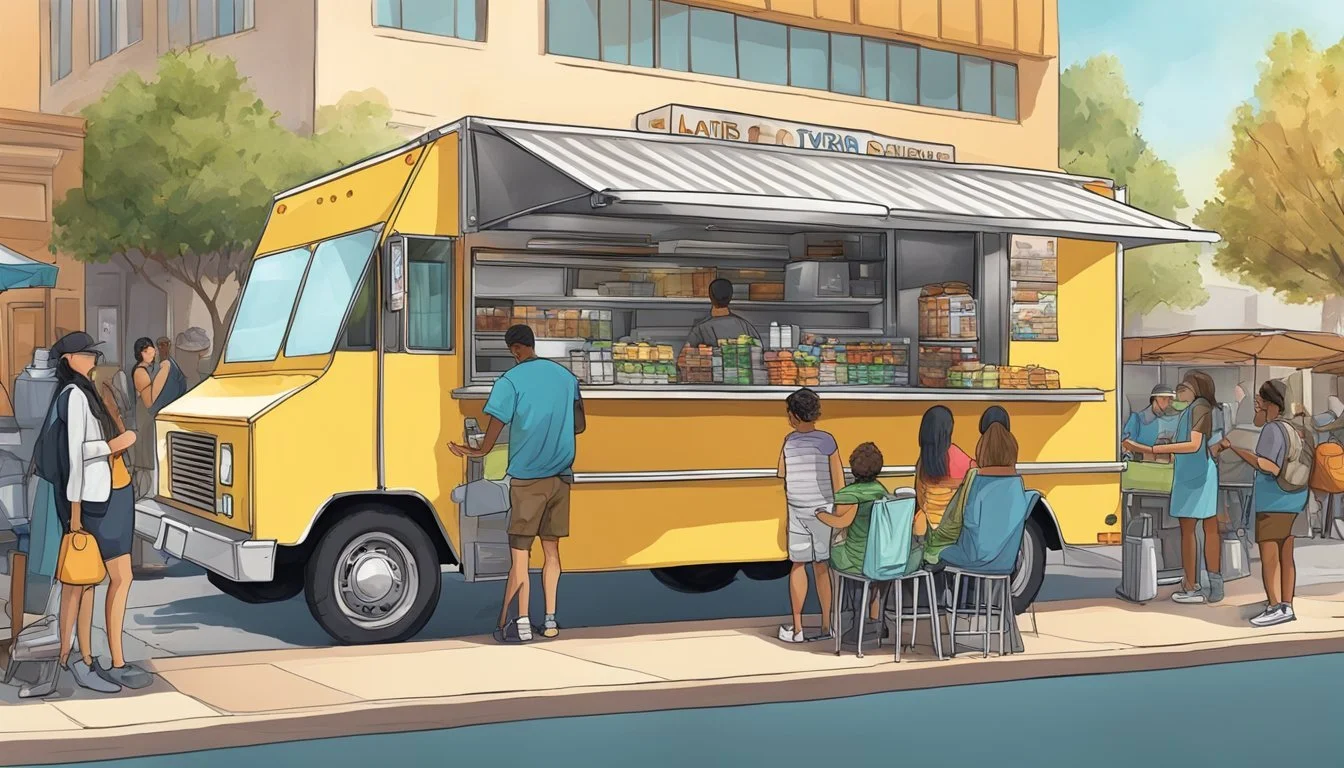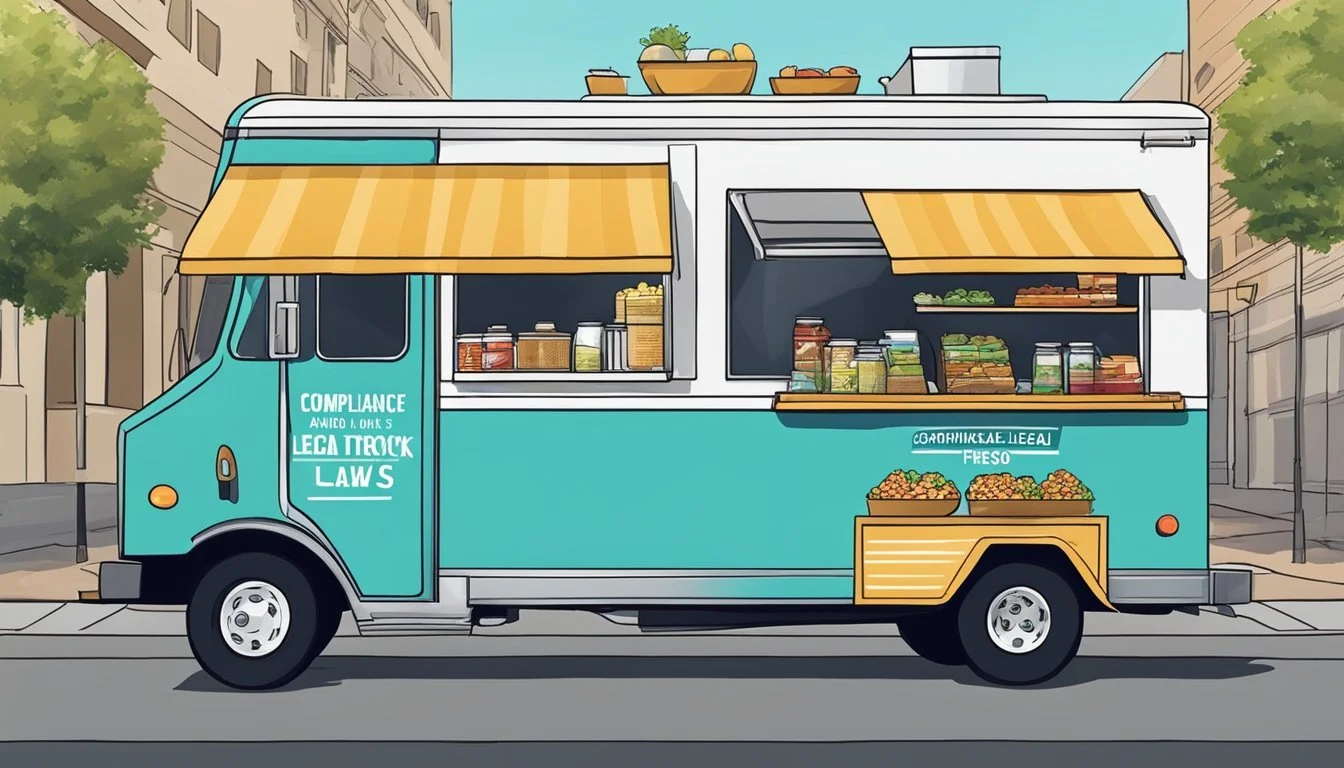Food Truck Laws Fresno, California
Navigating Regulations for Mobile Vendors
In Fresno, California, the mobile food vending industry is subject to a variety of regulations to ensure food safety and public health. Food trucks and other mobile food vendors are governed by specific laws that dictate how they operate. Compliance with these laws is monitored by Fresno County's Department of Public Health, which implements the state's health and safety codes for mobile food facilities. These laws cover several aspects of food truck operation, including the handling and preparation of food, the maintenance and construction of the mobile food facility, and the necessary permits and certifications.
For instance, mobile food vendors in Fresno are required to attain Food Manager Certification if they handle unpackaged potentially hazardous food. The certification process ensures that at least one person per facility is knowledgeable in safe food handling practices. Moreover, certain types of mobile food facilities, such as hot dog and shaved ice carts, are common in the area, each with their respective set of guidelines, especially concerning the cooking and hot holding of non-prepackaged foods.
Mobile food vendors must also navigate the administrative side of operations, which includes obtaining the relevant permits. A detailed permit and inspection checklist is provided by the county to assist vendors in the process. This checklist highlights the requirement for construction or remodel plans, equipment specifications, and the associated plan check fees. It's crucial for vendors to meet all regulatory requirements to operate legally and maintain the trust of their customers.
Understanding Local Regulations and Requirements
In Fresno, California, food truck operators must navigate a series of local regulations that govern the operation of mobile food facilities. From obtaining the proper licenses and permits to adhering to specific health and safety standards, compliance is crucial to running a food truck business within the city's legal framework.
Licensing and Permit Overview
To operate a food truck in Fresno, several licenses and permits are required. A business license is necessary for any commercial operation, while a mobile food facility permit serves as a food truck's operational license. Operators must also secure a seller’s permit, which is essential for sales tax purposes.
Business license: Mandatory for all businesses.
Mobile food facility permit: Specific to food trucks.
Seller’s permit: For handling sales tax.
Fresno Specific Laws for Food Trucks
Fresno has its own set of laws that pertain to the operation of food trucks. These include maintaining a minimum distance from other food trucks and residential areas. Food trucks must also operate in conjunction with a commissary—a licensed commercial kitchen—where they can perform necessary food preparation and storage tasks.
Distance regulations: Food trucks must be 6 feet apart.
Commissary use: A commissary is essential for food prep and storage.
Health and Safety Standards
The California Retail Food Code applies to food trucks in Fresno, just as it does to all food service entities in the state. Food safety is paramount, with at least one employee required to hold a valid food safety certification. Regular health inspections ensure that food trucks maintain compliance with the health and safety code. Operators must demonstrate knowledge of safe food handling practices and adhere to proper food temperature controls.
Food safety certification: At least one certified person must be on-site.
Health inspections: Conducted to monitor compliance with safety standards.
By adhering to these detailed regulations, food truck owners in Fresno can ensure they meet all legal requirements, focusing on delivering quality food to their customers within a safe and approved framework.
Establishing Your Food Truck Business
In Fresno, California, setting up a successful food truck venture hinges on meticulous planning, selection of appropriate equipment, and effective branding strategies.
Creating a Solid Business Plan
Any food truck business starts with the development of a thorough business plan. This document should detail the concept of the food truck, including its unique selling proposition and profit margin goals. It must also include market research to identify potential markets and understand the competitive landscape. The business plan serves as a roadmap for the business and is essential for securing funding from investors or lenders.
Selecting the Right Equipment and Vehicle
Choosing the right vehicle and cooking equipment is crucial for the operational success of a food truck. Owners have a variety of options including trailers, vans, or other portable units equipped to prepare and serve food. It is important to ensure the equipment is up to code and can efficiently produce the menu items. A well-equipped vehicle will be the backbone of the food truck's daily operations.
Building a Strong Brand and Menu
A compelling brand and a unique menu are vital for a food truck's identity and customer appeal. The name and marketing strategies should resonate with the targeted audience and reflect the concept and menu. Continuous engagement through social media and collaboration with local restaurants or events can strengthen the food truck's presence in the market. The team's passion and dedication to delivering quality food are also key components of building a strong brand.
Operational Considerations for Food Trucks
In Fresno, California, food truck operators must address specific concerns including strategic parking, meticulous inventory management, and ecological waste disposal to ensure smooth operations within legal frameworks.
Navigating Parking and Location
Food trucks in Fresno must abide by local regulations, such as maintaining a six-foot distance from other food trucks and avoiding cooking within 100 feet of residential zones. Locations must be carefully selected to comply with restrictions and to tap into popular spots. Operators need to be aware of the various jurisdictions and obtain the necessary permits for mobile food vendors.
Parking restrictions: Avoid restricted zones and adhere to designated parking schedules.
Popular spots: Research and select high-foot-traffic locations to increase visibility.
Managing Inventory and Food Handling
Robust inventory management is crucial. Inventory needs to be aligned with projected sales to ensure freshness while minimizing waste. Food handling, especially for potentially hazardous foods, requires strict compliance with safety regulations.
Ingredients: Use fresh, local ingredients to ensure quality.
Packaging: Opt for eco-friendly packaging to enhance brand image and reduce environmental impact.
Preparation: Engage in limited food preparation onsite, adhering to guidelines for both potentially hazardous and non-potentially hazardous foods.
Ensuring Proper Waste Disposal
Proper waste disposal methods are mandated to maintain hygiene and environmental standards. Food trucks must have a system for regular waste removal.
Waste types: Segregate waste into recyclables, organics, and landfill to simplify disposal.
Waste disposal: Partner with Fresno County waste management services for regular and responsible waste disposal.
By addressing these operational aspects thoughtfully, food truck owners in Fresno can run their businesses ethically and efficiently, while remaining in good standing with local health and business regulations.
Customer Engagement and Sales
In Fresno, California, food trucks must hone customer engagement strategies and leverage various sales channels to thrive. By maximizing customer experience, utilizing online platforms, and participating in local markets and events, they can enhance service and drive sales.
Maximizing Customer Experience
Success for food trucks in Fresno hinges on delivering an exceptional customer experience. Each interaction, from the point of service to the taste of the food, should reflect the truck's commitment to quality. Food trucks can encourage repeat business and positive word-of-mouth marketing by providing great service, maintaining a clean and inviting eating area, and ensuring customer satisfaction.
Leveraging Online Platforms
Online platforms are invaluable tools for food trucks to reach their audience. They should maintain a consistent presence on social media to engage with customers and relay information about menu updates, locations, and special offers. Utilize email marketing to keep loyal customers informed, and consider a phone app to streamline the ordering process, which can improve the overall experience for tech-savvy patrons.
Participating in Local Markets and Events
Being present at local markets and events in Fresno is a critical avenue for food trucks to boost their visibility and expand their customer base. Trucks should market their attendance beforehand through flyers and online announcements. By providing memorable service and unique offerings, they can stand out and attract both new and returning customers to their stall.
Compliance and Legal
Ensuring a food truck operation in Fresno County adheres to state and local regulations is crucial for both legal compliance and public health. Key aspects include routine inspections, acquiring necessary food handling certificates, and navigating the interactions with various government agencies.
Inspections and Health Department Interactions
In Fresno County, food trucks must undergo regular inspections by the health department to ensure adherence to state-approved food safety standards. These evaluations check for proper food handling, storage, and preparation practices. Any complaints or violations can lead to additional scrutiny or even the suspension of operation. Food trucks must also provide easily accessible hand-washing stations as part of the inspection criteria.
Understanding California Food Handler Laws
Operators and employees in the food truck industry need a California Food Handler Card—a certification that confirms individuals have undergone training in food safety. At least one individual with this certification must be present during operating hours. This law ensures that food truck operators maintain the same standards as a brick-and-mortar restaurant.
Navigating Government Agencies
Running a food truck in Fresno involves dealing with multiple government agencies. Operators must register their business, typically as an LLC or other appropriate entity, and meet the specific legal requirements set forth by the state. Resources such as CalGold can assist with finding applicable permits and licenses. It’s crucial to comply with these regulations to avoid legal issues and to ensure the food truck is allowed to operate within Fresno County.







